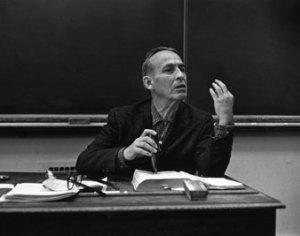It’s been a rough couple of months for the science Wunderkind. Jonah Lehrer resigned today from his post at the New Yorker after acknowledging that he fabricated quotes in his most recent book, Imagine. His publisher is pulling the e-book that contains the misquotations and is halting production of physical copies.
Lehrer admitted that quotes that he had attributed to Bob Dylan ”either did not exist, were unintentional misquotations, or represented improper combinations of previously existing quotes.”

Jonah Lehrer, the educator who admitted he wasn’t too honest with his attributions.
This news comes on the heels of a smaller scandal, in which Lehrer admitted to reusing or “self-plagiarizing” his own work in numerous published pieces without telling his editors. At the time, Lehrer had just left his post at Wired, where he was a contributing editor, to become a staff writer at The New Yorker.
Lehrer issued an apology this morning:
I understand the gravity of my position. I want to apologize to everyone I have let down, especially my editors and readers. I also owe a sincere apology to Mr. Moynihan. I will do my best to correct the record and ensure that my misquotations and mistakes are fixed. I have resigned my position as staff writer at The New Yorker.
Felix Salmon has already written a nice little ditty about how Lehrer should have been using the blog for different purposes, because the blogging format is informal and relies on “glossing.” Some in the media have even suggested that Lehrer’s plagiarisms reveal misogynistic patterns of arrogance. (I’m not overly fond of this explanation for why he plagiarized, but it would be interesting to find out which sex plagiarizes more. I wouldn’t be surprised if men in major publications plagiarized more than their female counterparts.)
What’s sad about Lehrer is the same thing that’s sad about Winona Ryder: neither had a glaring need that would have made deceit or theft necessary. Ryder was rich and didn’t need to steal clothes. Lehrer is gifted and didn’t need to bend the facts to make a compelling story.
I will, however, admit to feeling some Schadenfreude about Lehrer. To me, Lehrer always seemed glib, slick, and conceited. By itself, nothing really to complain about, since a lot of writers are like that. Yet Lehrer started off as a scientist, and I think he still identifies as one. Lehrer’s mistake shows a very unscientific prerogative: bend the facts to fit your hypothesis. I guess he wasn’t much of a scientist after all. I’m glad to finally have the mask ripped off.
* * *
A related question: will the reputation of Radiolab, where Lehrer was a frequent contributor, be tainted by association? Earlier this year, Mike Daisey created a stir when he lied to This American Life about a trip he took to China for a story about working conditions in factories that assemble Apple products. This American Life redacted a story which featured Daisey’s fictitious monologue, an embarrassing first for the journalism show. Radiolab was quick to defend Lehrer after the initial accusations of self-plagiarism surfaced in June. Jad Abumrad, the show’s creator, called Lehrer “one of the most stunningly creative voices [he's] ever encountered.” Ouch.
* * *

Maclean teaching at the University of Chicago. Maclean was 74 before publishing his first novel.
Two tangents: 1) “Lehrer” in German literally means “teacher.” 2) Lehrer reportedly failed to attribute to Norman Maclean a description of a 1949 firefight in Montana that Lehrer used but that Maclean wrote. If you haven’t read A River Runs Through It or Young Men and Fire, both written by Maclean, do yourself a favor and read them.

